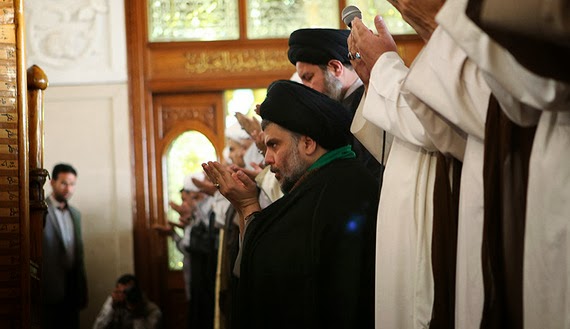 Iraq's Changing Politics on Iran
Iraq's Changing Politics on IranIran Focus
London, 14 Sep - Human Rights activist and former political prisoner in Iran, Hamid Bahrami, wrote a piece for Al Arabiya on how the changing balance of power in Iraq could be detrimental to the Iranian Regime’s bid to take over the Middle East.
The defeat of ISIS has created a power vacuum across the Middle East, but specifically in Iraq, that the Iranian Regime felt entitled to fill, however, many Iraqi politicians are changing their minds about obtaining support from Iran, including famed Shi’ite clerics Ammar Al Hakim and Muqtada al-Sadr.
Bahrami wrote: “After 14 years of internal violent conflicts, part of the pro-Tehran Shi’ite alliance has finally realized that the unconditional dependence on the Iranian regime will further exacerbate the sectarian conflict.”
Al Hakim has stepped down as the leader a pro-Iran Iraqi group, which means that many Iraqi Shi’ite voters will not be backing the plans of the Islamic Revolutionary Guard Corps (IRGC) in the upcoming elections.
Meanwhile, al-Sadr, leader of the Sadrist movement, has even decided to visit Saudi Arabia and the UAE, where he will have to choose between supporting Iran or changing his views on Sunni political parties.
Bahrami wrote: “It is agreed that the former Iraqi prime minister, Nouri Al-Maliki’s catastrophic and sectarian policies lead to a deep division among different ethnicities in Iraq. These policies, adopted in coordination with Tehran and its IRGC, were in part based on suppression of the Sunnis and disregarding of their rights.”
He continued: “The weakness of Iraqi army, the frequent use of armed forces to achieve political goals, the direct control of commander of IRGC’s Quds force Qasem Soleimani over Iraqi Shi’ite militias, and eventually, the seizure of nearly one third of Iraqi territory by ISIS, all lead to the recent decision by both of these clerics to distance themselves from the Iranian regime.”This is terrifying to the Iranian Regime, in particular Supreme Leader, Ali Khamenei, who sent a special envoy to Iraq to meet with Sadr and Grand Ayatollah Sistani; even worse for the Regime, their envoy was refused.
Amir al-Kanani, a spokesperson for the Sadrist movement, said: “Iran’s interference in political affairs is detrimental to Iraq’s national interest … Khamenei’s envoy carries a new sectarian project that Iran provided six months ago.”
Bahrami wrote: “Although the Iranian Supreme Leader got Sistani’s message, it would be naive to believe that the IRGC under Khamenei’s control will give up to the new reality in Iraq and not try to bypass all likely restrictions. The IRGC controls a powerful Shiite militia, known as People Mobilization Units, and it could use it to put pressure on its dissidents. Consequently, will Grand Ayatollah Sistani take real actions if Tehran uses the IRGC to eliminate its opponents in Iraq physically.”
Bahrami continued: “If Sadr, al-Hakim and Sunni parties agree to restrict Iran’s destructive role in Iraq, the balance of power will shift significantly in favour of the Iraqi people and their representatives. Such agreement will require complicated political negotiations and a real willingness from all these parties to compromise in the interest of an independent Iraq.”
No comments:
Post a Comment